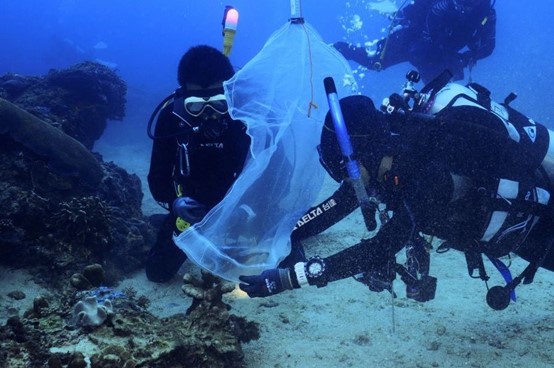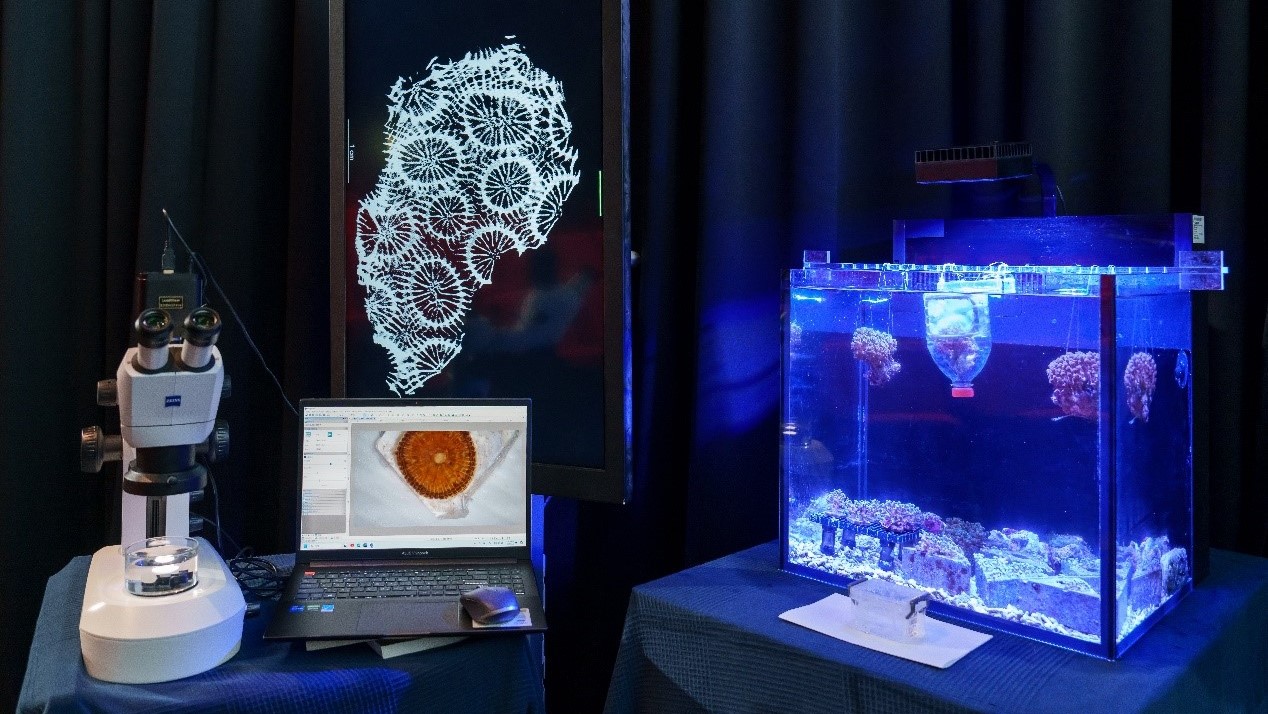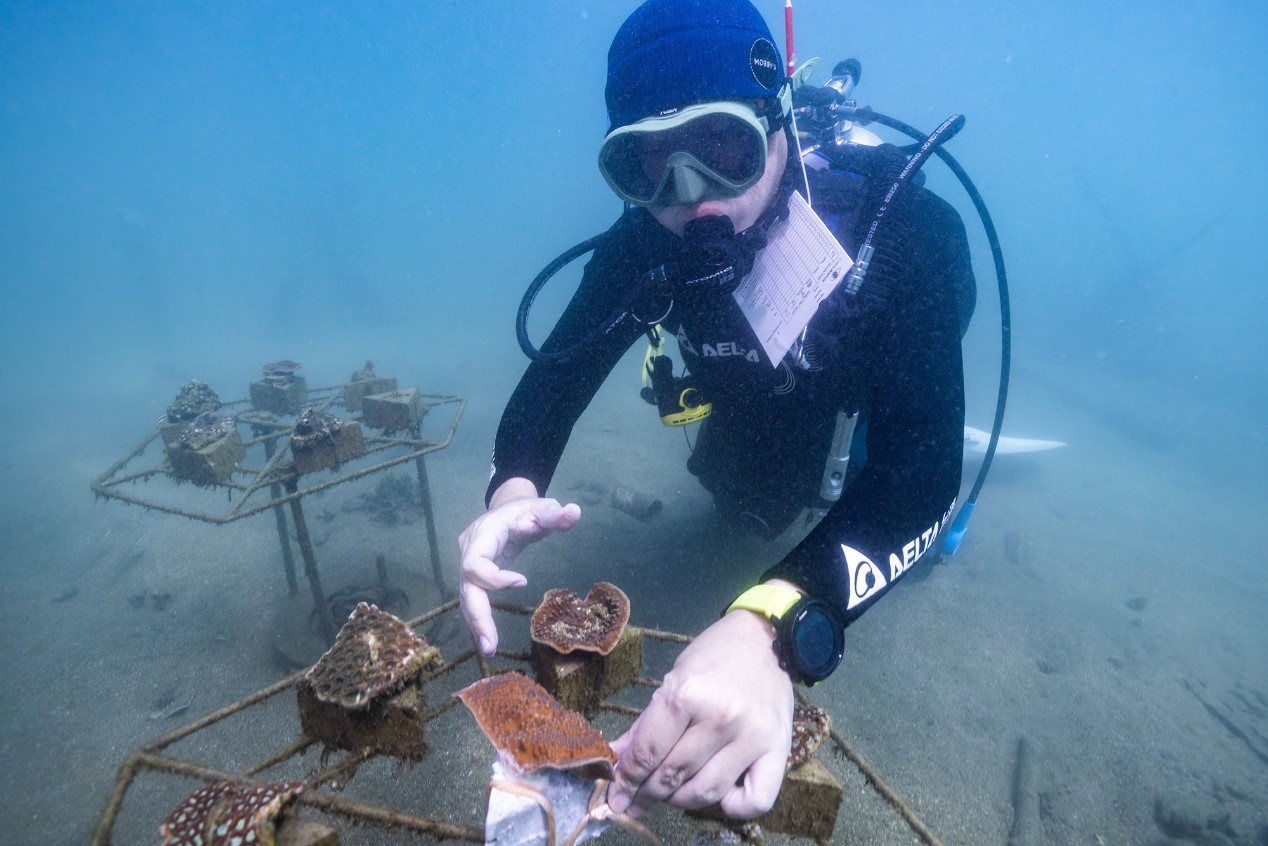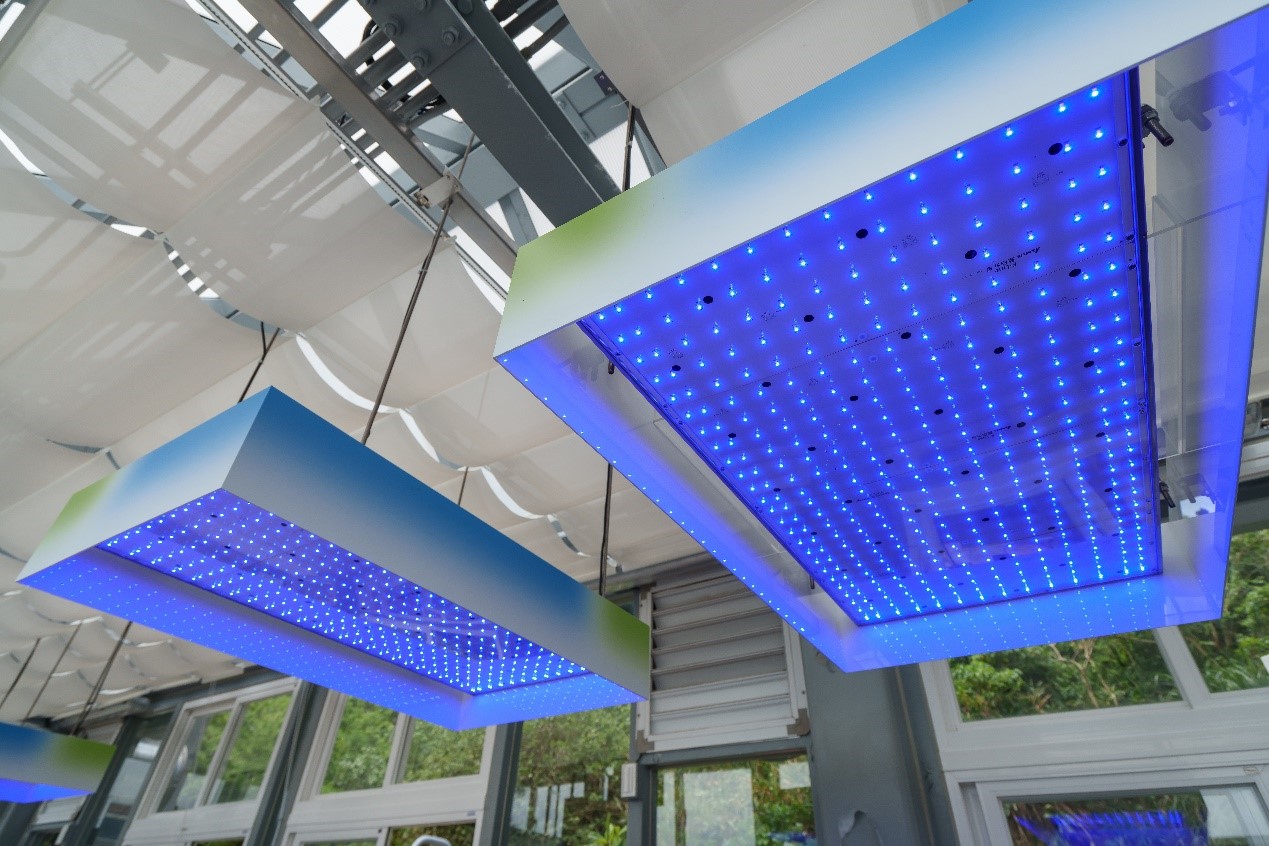
Updated:2024/05/15
Every year when entire colonies of coral reefs simultaneously release sperm and eggs into the ocean, we observe the development of coral gonads and deploy water temperature and illumination monitoring devices underwater to probe local hydrological conditions. Corals that potentially release sperm and eggs are marked, and we collect the gametes along with the fragments to conduct molecular identification, analysis of symbiotic algae clusters, and artificial insemination. During the collection, the health status of corals and the number of released sperm and eggs are at the same time checked and recorded.
The research projects to separate egg-sperm bundles, and adopt cryopreservation technology to keep corals and their cells alive. We would further use different light intensities, coupled with the cultivation of different symbiotic algae clusters, to explore the growth rate of corals and the composition of the symbiotic algae community after fertilization. Currently, we expect to complete the collection and incubation of 10 types of coral. We will through the coral symbiosis and the breeding of heat-tolerant coral reinvigorate corals suffering from warming oceans.

Delta and Mote Aquarium developed a partnership for coral research and rescue mechanisms.

Delta equips these volunteers with the necessary skills to use available tools such as CoralNet, iNaturalist, and CoralWatch to enhance restoration efforts.

The goal is to determine how to optimize the LED lighting to accelerate coral settlement and growth rates.